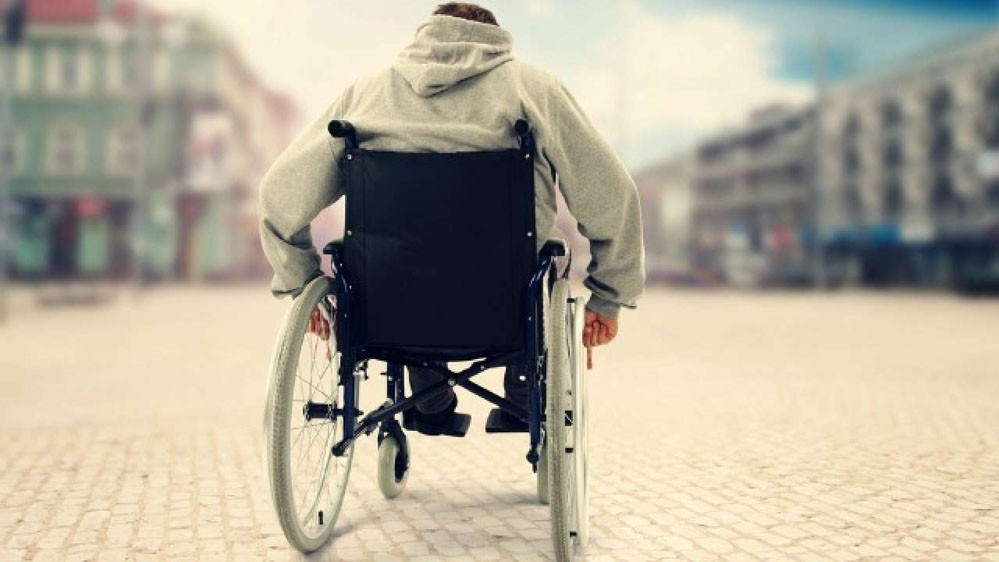
Around 41,000 people are estimated to have received spinal cord injuries in odd incidents in different parts of Punjab, over the past 15 years. Just one treatment facility in the entire province is insufficient, to say the least

Newly wedded Ahsan and Hina, from Rahim Yar Khan, met with a road accident recently that left the former with multiple neck injuries. Because there was no facility available close to home to deal with such casualties, not even at the nearby Nishtar Hospital, Multan, Ahsan was moved to the Punjab Institute of Neuro Sciences (PINS) in General Hospital Lahore where his spinal cord was said to have been badly hurt.
Travel from Rahim Yar Khan to Lahore by road takes up to 12 hours, but when you are carrying a patient it may take more time because the vehicle is to be driven carefully to avoid shocks. Rash driving can aggravate spinal issues.
God knows Ahsan is only one of the thousands of people who receive severe Spinal Cord Injuries (SCIs) in different sorts of accidents in Punjab every year. According to the data provided by Rescue 1122, at least 40,962 cases related to spinal cord injuries have been reported in different parts of the province in the last 15 years.
A breakup of the data shows that an average of 2,733 cases of SCIs occurred every year, corresponding with at least 227 road accidents in Punjab alone. It is unfortunate that despite this high incidence there is only one public facility -- PINS, Lahore -- where these patients can be treated. The result is a greater burden on the hospital, and the unavoidable increase in complications because the process is likely to take long.The statistics gathered by the World Health Organization (WHO) are no less alarming: every year between 250,000 to 500,000 people suffer from SCIs with related complications such as pressure ulcers, thrombosis, chronic pain, UTI and respiratory issues resulting mainly from provision of inadequate medical and rehabilitation services. The SCIs and the resultant paralyses, including paraplegia, are some of the most traumatic of all disabilities.
Dr Khalid Mehmood, Professor of Neurosurgery at PINS, and former principal of LGH, speaks of treating patients from as far away as Sindh, Balochistan, and Afghanistan.
"Though a few public sector hospitals such as Mayo and Jinnah in Lahore and Nishtar in Multan are treating patients with minor spinal injuries, the serious cases have to be referred to PINS," he adds.
Dr Mehmood further says that the SCIs occur largely due to road accidents, falling from rooftop, harmful contact in a sport etc. "Those riding motorbikes are the most vulnerable."
He reveals that 50 per cent backbone (neck region) injuries are the most critical, and can render the patient completely disabled if not treated immediately.
Neck injury with no movement of body parts is seen as a complete spinal injury, he says. Besides, "we have to procure medical supplies such as rods and screws to fix the spinal discs in complex surgeries."
Among other categories, 15 per cent are thoracic, 15 per cent back fractures, and another 15 per cent the injuries between the back and the chest. "Those with incomplete spinal injuries are the luckier ones; they recover completely after treatment. But complete spinal injury is nearly irreversible. Treating such injuries is a huge task for the doctor-surgeon also, as it involves a great deal of care. It is also a very expensive treatment."
He advises that in the event of a road accident, Rescue 1122 should be called in for first aid and rushing the casualties to the hospital. "In many cases, the problems aggravate due to mishandling [of the injured] at the accident site."
He says that electronic wheelchairs are the best option for such patients, though these may be too expensive and are generally not available in Pakistan. So, the patients have to make do with locally manufactured, manual wheelchairs whose price ranges between Rs3,000-15,000.
Popularly known as "Big Brother" for his outstanding work for the disabled, Dr Khalid Jameel, former dean and head of the Physical Medicine and Rehabilitation (PMR) Department at Mayo Hospital, Lahore, is of the view that after an accident, first aid and proper shifting of the patient to the hospital are imperative to survival.
Back in 1979, when he was a medical student, Dr Jameel had received multiple injuries in a car accident. His legs are motionless, but he has managed to get rid of the wheelchair. "If I was able to get rid of it [the wheelchair] it was only thanks to the timely first aid I received," he declares.
He regrets the fact that there is not a single rehabilitation centre in Pakistan as of now, "In the past, I set up a rehabilitation department at Mayo [Hospital] for people with different disabilities, but the major brain drain of trained doctors left us without progress."
Dr Jameel contends that treatment "can cure only 10 per cent of patients with spinal injuries, whereas the remaining 90 per cent must be referred to rehabilitation centres. Sadly, this isn’t a priority with the authorities concerned."
He urges on the government to run awareness campaigns highlighting ways to handle those injured in road accidents. Besides, "the government must dedicate six to seven beds at each district hospital for patients with spinal injuries only. This would help to provide the victims with timely first aid before they are shifted to bigger cities such as Lahore."
Dr Jameel informs TNS that only Ghurki Trust Hospital in Lahore has a specialised spinal surgery centre for treatment and rehabilitation, but they boast limited facilities.
Dr Rizwan Naseer, Director General, Rescue 1122, says that traffic laws need to be implemented in letter and spirit in order to save precious human lives in road accidents. "Licensing and registration of vehicles must be made mandatory," he says.